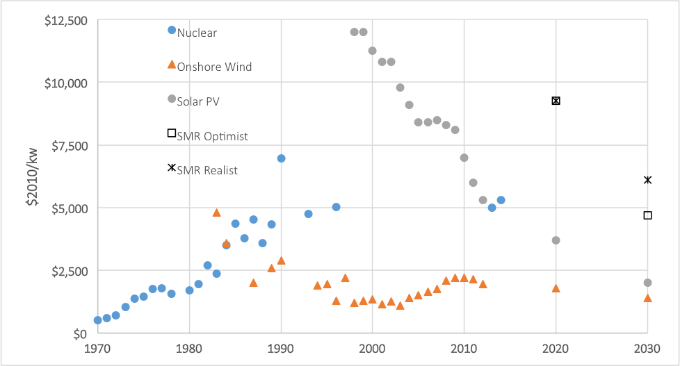You are here
Old Reactors v. New Renewables: The First Nuclear War of the 21st Century
Primary tabs

Lead image: Nuclear plant via Shutterstock
renewableenergyworld.com - by Mark Cooper - June 6, 2014
Within the past year, a bevy of independent, financial analysts (Lazard, Citi, Credit Suisse, McKinsey and Company, Sanford Bernstein, Morningstar) have heralded an economic revolution in the electricity sector. A quarter of a century of technological progress has led to the conclusion that over the course of the next decade a combination of efficiency, renewables and gas will meet the need for new resources and more importantly, render the antiquated baseload model largely obsolete.
The academic debate over whether we could get to an electricity system that relies entirely (99 percent) or mostly (80 percent) on renewables late in this century is largely irrelevant compared to the fact that over the next couple of decades we could see a rapid and substantial expansion of renewables (to say 30 percent of 40 percent), if the current economic forces are allowed to ply out and policies to advance the transformation of the electricity system are adopted.



Comments
Cost Factors Driving Societal Moves Toward Wind and Solar
Despite the devastating impacts of Fukushima, not to mention Chernobyl, U.S. policy regarding nuclear power generation has not changed. However, the economics have crippled the nuclear industry's ability to build new plants over the past three decades. It was ultimately the poor financials of Vermont Yankee that contributed to its shutting down after the government of Vermont and the Vermont public overwhelming supported shutting this old, Tritium-leaking plant down. This plant was the same type of nuclear plant as Fukushima.
The cost benefits of solar and wind are dramatically improving investments in these superior technologies.